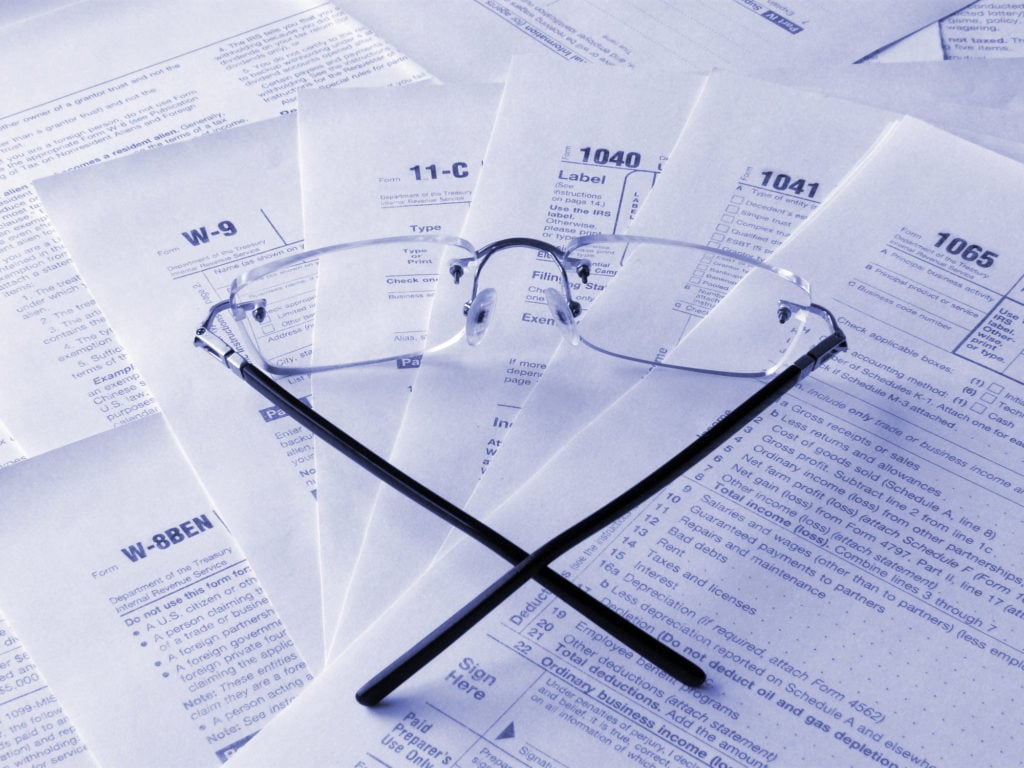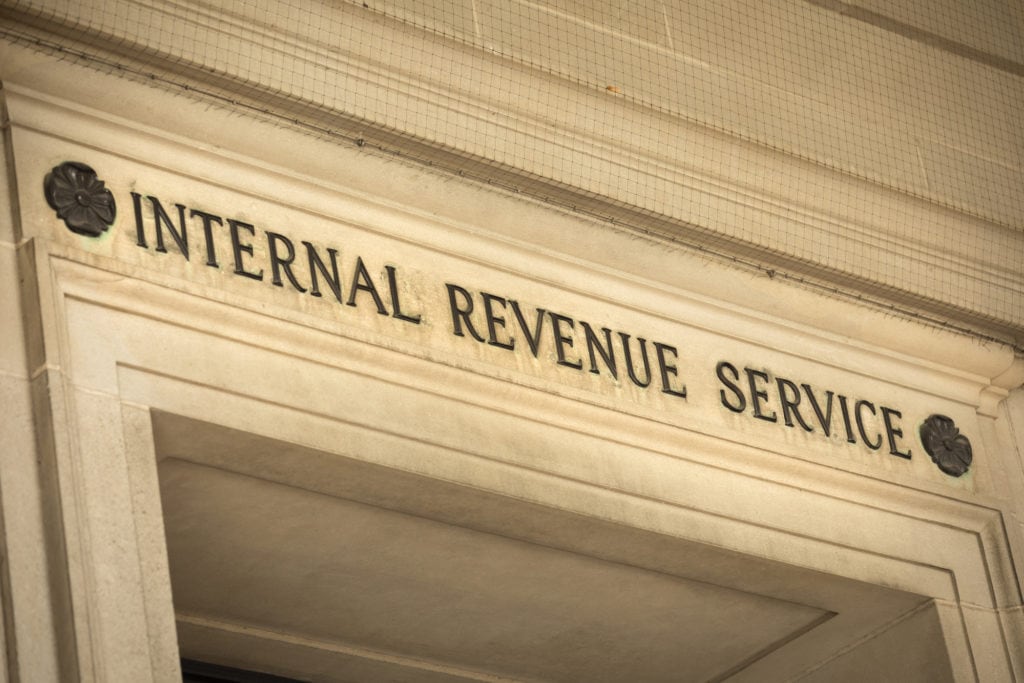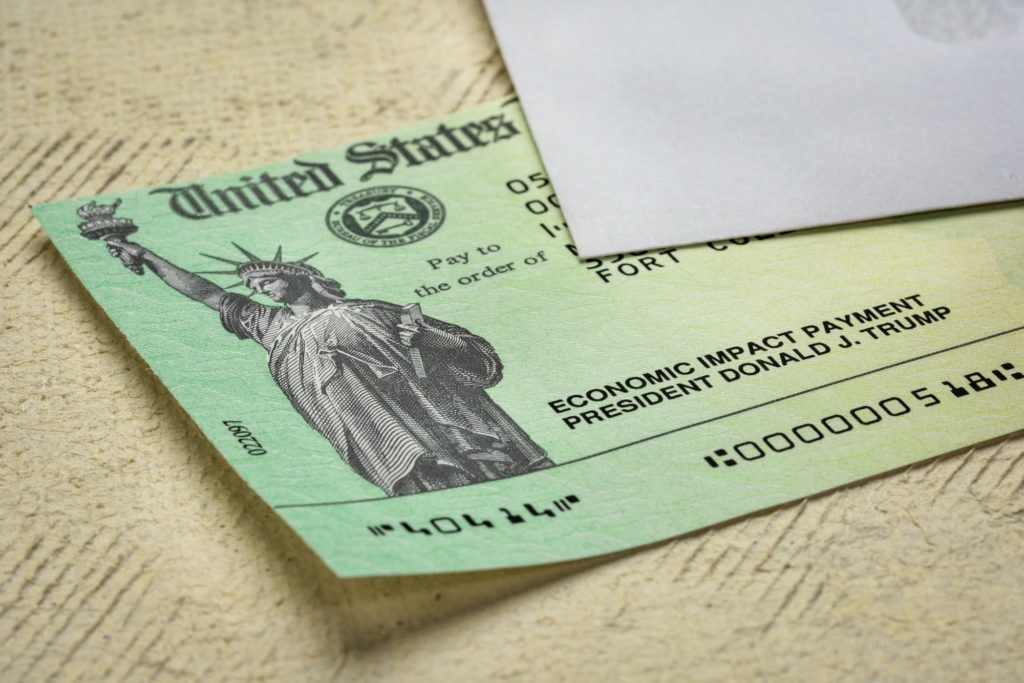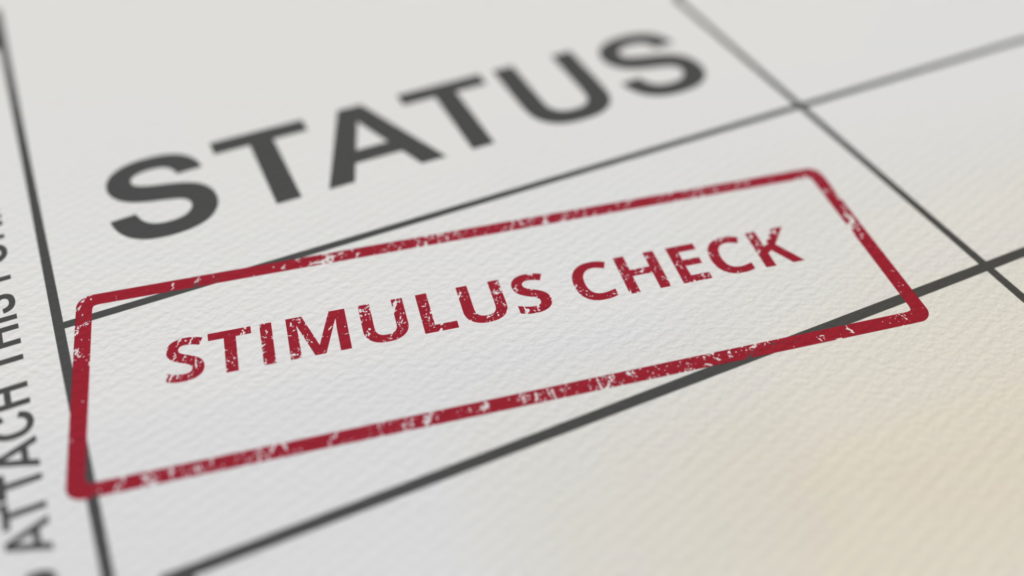Uncle Sam dips his hand into our wallets over and over again - from taxing our properties and income to our investments. But how did the Internal Revenue Service get started? How did we go from zero income taxes at the nation's founding to the IRS we know and love today?
This guide will teach you about the IRS history, how to protect yourself from nasty tax audits, and information regarding your stimulus check.
Let's get started.
Also, check out this conversation with Rich Dad, Poor Dad tax strategist, Tom Wheelwright.
A Deep-Dive Into the Internal Revenue Service
What is the United States Internal Revenue Service (IRS)?
The Internal Revenue Service is a U.S. government agency with the power to collect taxes and administer tax laws. The IRS formed in 1862 so that the government could impose income taxes to fund the Civil War.
What Is The Internal Revenue Service Responsible For?
So, what does the IRS do?
According to the U.S. Department of the Treasury, the "Internal Revenue Service (IRS) is responsible for the determination, assessment, and collection of internal revenue in the United States."
The IRS's first mission was to collect income tax to fund the civil war. Fast forward to today, and the government uses taxpayer's money to fund:
- Social security
- Medicare
- National defense
- Infrastructure
- Social and welfare programs
- And more
The IRS also investigates allegations of tax fraud (and the taxman is good at his job). The IRS formed Criminal Investigation (CI), and its conviction rate has never fallen below 90 percent.
Is the Department Of the Treasury The Same As The IRS?
If you're wondering who owns the IRS, it's the Department of the Treasury. The Department of the Treasury and the Internal Revenue Service are not the same. Instead, the Internal Revenue Service is a government department that operates under the larger U.S. Treasury umbrella.
When Did the IRS Begin?
Ready for a lesson on the IRS history timeline? Here is how the IRS formed and evolved into the selfless agency we know today.
Creating the Department of Treasury

The collection of taxes started way before the IRS formed. American colonists separated from England with the July 4, 1776 signing of the Declaration of Independence. America was finally an independent nation but needed income to protect and provide for its citizens.
In 1787, Congress revised the Articles of Confederation. Now, it empowered Congress to "lay and collect taxes, duties, imposts, and excesses, to pay the debts and provide for the common defense and general welfare of the United States."
With this, Congress established the Department of the Treasury in 1789. However, the government could only levy indirect taxes. These were primarily taxes on goods, like sugar and carriages.
Who Created the Internal Revenue Service?
The Civil War broke out in 1861, and President Abraham Lincoln and indirect taxes weren't covering the costly war efforts. To access the funding needed, Congress passed the first income tax. This imposed a direct tax of $20 million among all the states.
However, the government needed somebody to enforce these new tax laws. Therefore, Congress created the Bureau of Internal Revenue (now known as the Internal Revenue Service) under the treasury secretary. As for who runs the IRS, it is the Commissioner of Internal Revenue. The commissioner has the power to enforce tax laws through seizure and prosecution.
Income Tax Declared Unconstitutional… Wait. What?
That's right, and it's because of this case: Pollock v. Farmers Loan Trust Co.
The government initially could only impose indirect taxes (e.g., whiskey tax). This case argued that an income tax was a direct tax. In 1894, the U.S. Supreme Court agreed and ruled that imposing income taxes was unconstitutional.
Guess what Congress did?
In 1913, Congress passed the 16th amendment. This allowed the federal government to collect income taxes on corporate and individual income.
Because if it's unconstitutional, just pass an amendment to make it constitutional.
Right?
But there was a reason Congress needed to tax people's income: World War I.
What Was The Highest Percentage Income Tax Paid In 1918? Why Was It So High?

The Revenue Act of 1918 imposed a progressive income-tax rate structure of up to 77%. The government used these funds to help cover the growing World War I costs.
Imagine if Congress tried taxing 77% of people's income today!
Taxes, Taxes, and More Taxes
But the government didn't stop at income taxes. Congress found new ways to tax its citizens to line its pockets (or more accurately — contribute to the national debt ceiling):
- 1913: capital gains taxes
- 1921: sales tax
- 1924: gift taxes
- 1937: social security taxes
- 1932: excise taxes on gasoline
Naturally, the growing number of taxes led to an ever-growing tax code.
"The original 1913 tax return was three pages and one page of instructions," said Aric Schreiner, CPA, PFS, CTC in the Columbia Daily Tribune. "The U.S. Tax Code is now 77,000 pages. If you count all the IRS Regulations, Rulings, and Tax Court cases, the number of pages increases to millions."
You read that right.
Millions of pages dictate how Uncle Sam can dip his fingers into the pockets of hard-working Americans.
Why Would I Get a Letter From the Department Of Treasury?
Why would the IRS Department of Treasury send me a letter?
The IRS will send you a letter for several reasons:
- You have a balance due
- You are due a larger or smaller IRS refund
- To ask questions about your tax return
- Or to verify your identity
- To request additional information
- Or finally, to notify you of delays in processing your return
Be sure to read your letter carefully. It should contain specific instructions, a due date for your response, and an IRS address if you need to send documents.
If you disagree with the notice, your response is critical. You can write a letter outlining your dispute and include any relevant documents for the IRS to review.
How Does the IRS Notify You That You Are Being Audited?

The Internal Revenue Service will notify you by mail if it selects you for an audit. IRS will not initiate an audit online or by telephone. They will conduct the audit by mail or an in-person interview. The interview location can be a nearby IRS office, your home, your place of business, or an accountant's office.
Your IRS audit will typically conclude in three ways:
- No change: You supplied the necessary documentation, and there are no changes.
- Agreed: The IRS proposes changes, and you agree with the changes.
- Disagreed: The IRS proposes changes, but you disagree with the changes.
Does the IRS Randomly Select For Review?
The IRS uses several systems and scores to trigger which individuals and businesses they will audit. Typically, you'll want to watch for red flags that may put you on the IRS's radar.
What Are The Red Flags For IRS Audit?
Want to protect yourself from your IRS audits? Then watch out for these red flags:
Miscalculations
The IRS is unforgiving, even for honest mistakes. Triple-check your tax return forms, or the IRS might slap you with some ugly fines.
False Home Office Deduction
Be sure you meet the requirements for a home office. (No, working on your laptop from your couch as you watch Netflix probably won't count).
Claiming 100% Business Use Of Vehicle
Don't claim business use of a vehicle if you're using it to drop the kids off at soccer practice. Otherwise, keep detailed mileage logs and calendar entries for every business excursion.
Claiming Too Many Donations
Charity is great. Just make sure you keep all your receipts for all your charitable contributions.
Failing To Report Gambling Winnings
Lady Fortune may be smiling on you at the casino, but so is Uncle Sam. If you win big, you still need to report that as income to the IRS.
Making A Lot Of Money
Unfortunately, higher-income individuals are more likely targets for audits. As you make more money, be even more careful about complying with tax regulations.
Excessive Business Deductions
Not everything is deductible. Do your research before claiming a deduction or risk the penalties.
Writing Off Loss On A Hobby
Deducting a loss only applies if you operate your business intending to make a profit. Unfortunately, running a blog that doesn't generate revenue typically wouldn't qualify as a loss.
Failure to Report Foreign Bank Accounts
Some people hide their money in foreign bank accounts, but the IRS quickly caught on. If you're thinking about conveniently forgetting to report it, think again.
Deducting Business "Leisure" Activities (Meals, Travel, Entertainment)
If you're deducting movie trips with the family, you expose yourself to the IRS's wrath. Be sure you're deducting business activities for actual business purposes. And keep your receipts!
Reporting Round, Neat Numbers
Even numbers like $1,000 look suspicious. Round to the nearest dollar instead of the nearest hundred. Numbers like $930 and $1,235 appear more accurate.
Failing To Report Income
If you have a small side hustle or freelance on the side, don't forget to report that income.
Trading Cryptocurrency
Cryptocurrency is a rising trend, and the IRS wants in. Be sure to review the IRS FAQ on virtual currency transactions to understand your tax obligations.
Schedule C Excessive Losses
If you're self-employed, disguising income as personal or business expenses is never a good idea.
What Information Does The IRS Have Access To?

The IRS has tons of information regarding your financial accounts.
Think about it.
You enter your social security number, bank account information, employer, and salary on your tax returns. Moreover, the IRS can access some information you submit to other government agencies, like the Social Security Administration.
Don't forget your banks. If your bank accounts earn more than $10 in interest, the bank will send you a Form 1099-INT. This lists the total amount of interest payments you must report. They also send a copy of this form to the IRS.
Can the IRS See Your Bank Accounts?
The IRS does not monitor the contents of your bank accounts. However, the IRS will compare your reported income to your bank account statements if they suspect you of tax fraud. Typically, the IRS does not dig beyond your tax returns until they select you for an audit.
Can I Chat With the IRS online?
At this time, the IRS does not offer any live chat features. However, you can receive telephone assistance or visit your local taxing agency.
How Do I Get a Live Person at the IRS 2020?
Want to get in touch with a live agent at the IRS? Here's how.
How do I reach a live person at the IRS? (Step-by-Step)
As of October 2020, this step-by-step process can help you navigate the IRS's call menu:
- The IRS telephone number for individuals is 1-800-829-1040.
- Press 1 for English or 2 for Spanish. Then select from the following menu:
- 7 for questions about the Economic Impact Payment.
- 1 for answers about your tax refund or amended tax return.
- 2 for answers about personal income taxes, the tax reform law, calculating income tax withholdings, or order a tax form or publication or tax transcript.
- 3 for answers about business taxes.
- 4 for general prerecorded information and resources about the healthcare law.
- 5 for answers about personal or business taxes related to healthcare.
You will then receive additional instructions before they transfer you to a live agent. However, many people complained about waiting three hours before speaking with a live person. If you don't have the time or patience, consider exploring online tools and resources on the IRS website.
What Is the Phone Number for IRS to Talk To a Real Person?
Here is a list of all the IRS phone numbers you can contact:
- Individuals: 800-829-1040
- Businesses: 800-829-4933
- Non-profit taxes: 877-829-5500
- Estate and gift taxes (Form 706/709): 866-699-4083
- Excise taxes: 866-699-4096
- Overseas callers: Visit their International Services page.
- Callers who are hearing impaired: 800-829-4059
- Schedule in-person meeting: 844-545-5640

Was I Supposed To Get a Stimulus Check?
The coronavirus pandemic has forced many business closures and layoffs. Under the Coronavirus Aid, Relief, and Economic Security Act (CARES Act), the U.S. government created a stimulus relief package for its citizens. Here's what you need to know about receiving your IRS stimulus check.
First Stimulus Check
You should have received a stimulus check of $1,200 or $2,400 depending on if you filed married filing jointly if you met the following requirements for maximum income:
- $150,000 for married couples filing joint returns
- $112,500 for head of household filers and
- $75,000 for all other eligible individuals
The IRS will send your payment to the bank account or address provided on your most recent tax return since 2018.
If you did not receive a check, it might be that you have no income or low-income. You can register for an Economic Impact Payment by using the free Non-Filers tool by November 21, 2020, through the IRS website.
If you are a nonresident alien, you would not be eligible for payment. Only qualifying resident aliens with a valid SSN could claim the stimulus check. Keep in mind that if you are a non-qualifying resident alien and received a check anyway, the IRS provides instructions for returning the payment to the IRS.
Second Stimulus Check
There is no definite confirmation about the second stimulus check for its amount or date of issuance. House Speaker Nancy Pelosi and Treasury Secretary Steven Mnuchin are still crunching the details. We may have to wait a little longer before a confirmed stimulus package.
Can I Call the IRS About My Stimulus Check?
You may call 800-919-9835 for questions regarding your stimulus check. On May 18, 2020, the IRS announced that they are starting to add 3,500 telephone representatives. The extra staff will help answer questions related to the Economic Impact Payment. However, as of October 2020, the IRS announces that live phone assistance is still limited. Chances are, you might have to wait a while.
How Do I Contact the IRS for a Stimulus Check?

Fortunately, you don't need to submit any IRS.gov forms or create an IRS stimulus check portal account to check your stimulus check status. The Internal Revenue Service makes it easy with the IRS Get My Payment tracking tool. Please note that this tool will require your social security number, date of birth, and address. After you enter your information, you should receive a notification like this:
TK
Taxes Won't Stop the Entrepreneurs
Yes, inefficient government and its excessive taxes can stifle innovation. But today's entrepreneurs are smarter, faster, and more creative than ever. Entrepreneurship and free markets reveal a better path forward. While the government is busy contributing to its black hole of debt, entrepreneurs will continue building better products, superior services, and changing people's lives.
Inside The One Percent, we talk about tax strategies as one way to build a business and keep more of its revenue. That’s just one piece of the puzzle for entrepreneurs seeking financial freedom. If you’re just starting out, check out this free training series - it’s our best information all in one place. And when you’re ready for a community of entrepreneurs that support each other like nothing else you’ve ever seen, join The One Percent.












